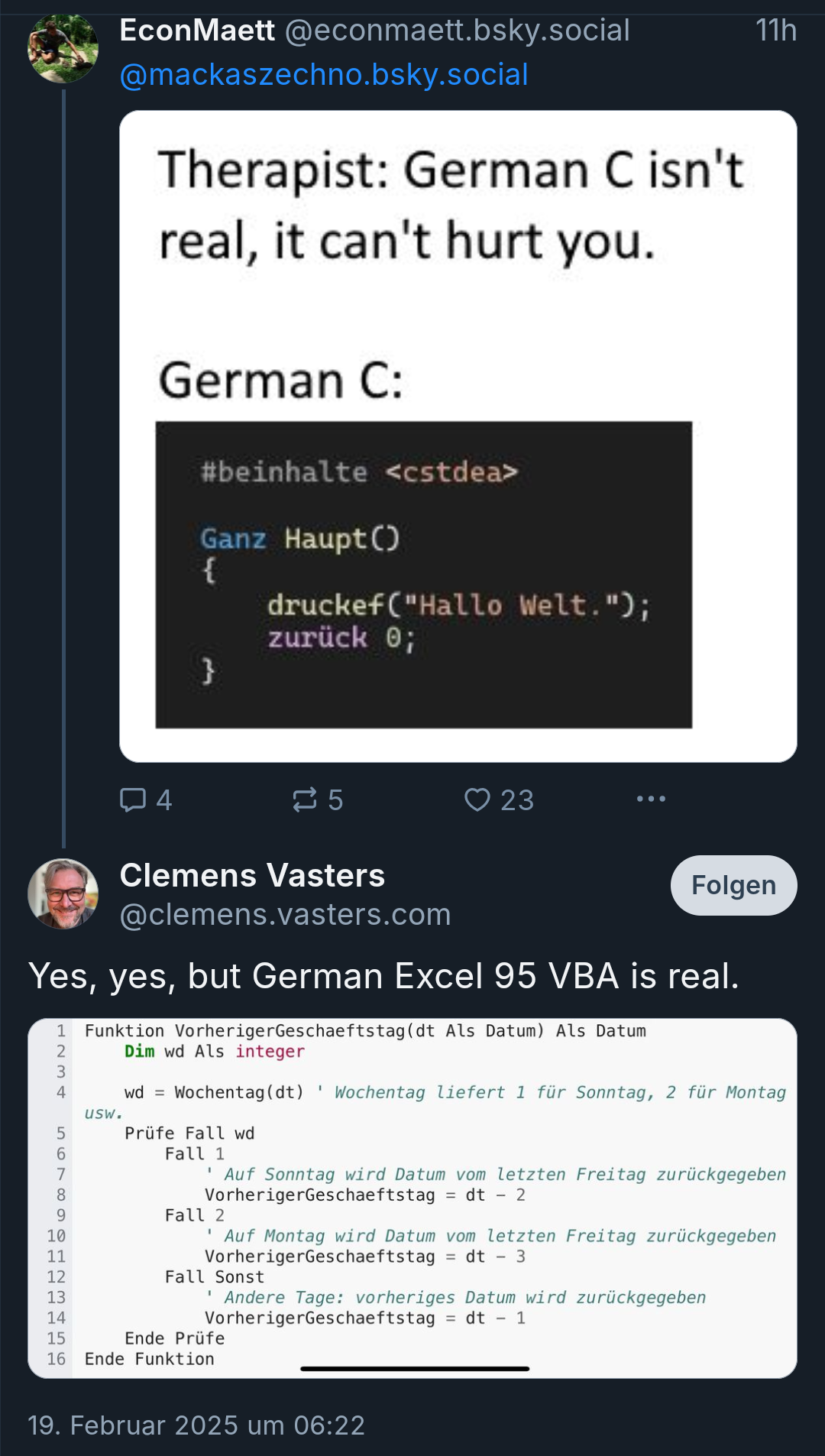https://github.com/michidk/rost
Aren't you müde from writing Rust programs in English? Do you like saying "scheiße" a lot? Would you like to try something different, in an exotic and funny-sounding language? Would you want to bring some German touch to your programs?
rost (German for Rust) is here to save your day, as it allows you to write Rust programs in German, using German keywords, German function names, German idioms.
